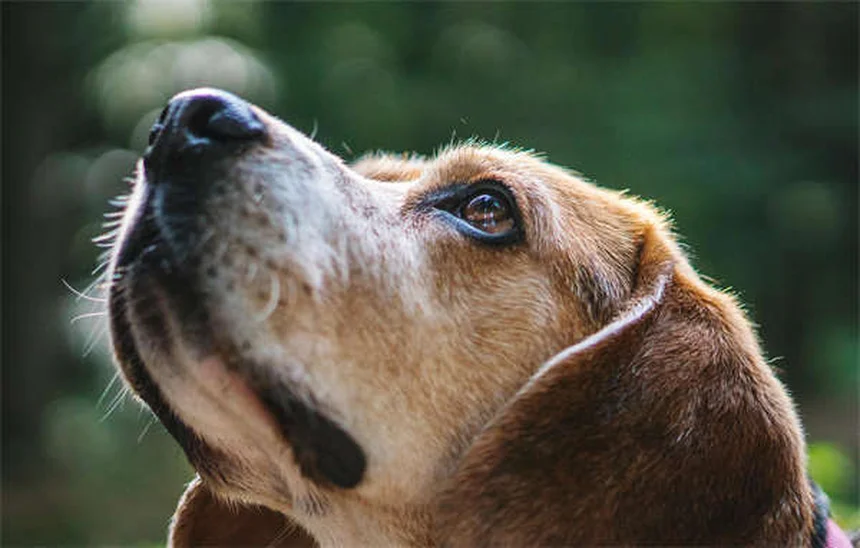What can ferrets eat? The answer is simple: ferrets need a meat-based diet to thrive! These playful little carnivores require high-protein, low-carb foods specifically formulated for their unique nutritional needs. I've been caring for ferrets for over a decade, and let me tell you - getting their diet right makes all the difference in their health and energy levels.You might be surprised to learn that most commercial cat foods don't cut it for ferrets. While they're both carnivores, ferrets need 32-38% protein in their diet - way more than what typical cat food provides. In this guide, I'll share everything I've learned about keeping your fuzzy friend happy and healthy through proper nutrition, from the best kibble choices to safe treats and feeding tips.
E.g. :Ferret Ate Something Strange? 5 Warning Signs & What to Do
- 1、Understanding Your Ferret's Diet Needs
- 2、Choosing the Best Ferret Food
- 3、Treat Time! (But Be Smart About It)
- 4、The No-No List: What Ferrets Can't Eat
- 5、Feeding Time Basics
- 6、Answering Your Ferret Food Questions
- 7、Final Pro Tips
- 8、Understanding Ferret Metabolism
- 9、The Truth About Ferret Treats
- 10、Special Dietary Considerations
- 11、Common Feeding Mistakes
- 12、Seasonal Feeding Tips
- 13、Emergency Feeding Solutions
- 14、FAQs
Understanding Your Ferret's Diet Needs
Why Meat is a Must for Ferrets
Let me tell you something funny - ferrets are basically tiny furry vampires! They absolutely need meat to survive, just like their wild cousins. These little guys are obligate carnivores, meaning their bodies are built to get all nutrients from animal protein.
Here's something important many owners don't realize: feeding the wrong foods can lead to serious health issues like inflammatory bowel disease or insulinoma. I've seen too many ferrets at the vet because their owners thought "a little cat food won't hurt." Trust me, it does! Their tiny bodies need at least 32-38% protein in their diet - way more than most cat foods provide.
The Great Cat Food Debate
Can ferrets eat cat food? Technically yes, but should they? Absolutely not! Here's why:
| Nutrient | Ferrets Need | Average Cat Food |
|---|---|---|
| Protein | 32-38% | 26-30% |
| Fat | 18-22% | 12-16% |
| Fiber | Under 3% | 5-8% |
See the problem? Even "premium" cat food falls short. And those cute little kibble shapes? Often too big for ferret mouths!
Choosing the Best Ferret Food
 Photos provided by pixabay
Photos provided by pixabay
What to Look For in Kibble
When shopping for ferret food, think simple and consistent. The bag should contain:
- Uniform looking kibble (no colorful bits)
- No seeds, nuts, or dried fruit
- Named meat sources as first ingredients
Here's a pro tip from my years of ferret care: buy multiple high-quality brands and mix them together. Why? Because manufacturers love changing formulas, and ferrets? Well, they're the pickiest eaters this side of a toddler refusing broccoli!
Keeping Food Fresh
Ferrets need food available 24/7, but that doesn't mean you can just dump and forget. Check their bowl daily for:
- Wet or soiled kibble
- Excessive crumbs (they hate eating "leftovers")
- Any signs of spoilage
And here's a funny thing - ferrets think food bowls make great toys! Use heavy crock feeders and keep water a few feet away to prevent soggy kibble disasters.
Treat Time! (But Be Smart About It)
Healthy Treat Options
Who doesn't love spoiling their fuzzy friend? But remember - ferrets are small, so treats should be tiny too! My favorites include:
- Plain puréed meat baby food (great for hiding medicine)
- Bob Church's Chicken Gravy (we call it "ferret crack" in our house)
- Small pieces of cooked lean meat (chicken, turkey, beef)
Ever seen a ferret do the "happy dance" for duck soup? It's like watching a furry tornado of joy!
 Photos provided by pixabay
Photos provided by pixabay
What to Look For in Kibble
Some "treats" are actually dangerous. Never give:
- Fruits (yes, even that cute raisin)
- Vegetables (their bodies can't process them)
- Dairy products (ferrets are lactose intolerant)
Here's a golden rule: if it's not meat-based, it's not ferret food. Simple as that!
The No-No List: What Ferrets Can't Eat
Common Household Dangers
You'd be surprised how many everyday foods can harm ferrets. The complete list would fill a book, but here are the big offenders:
- All human food (except small meat pieces)
- Cat and dog food (we covered this, but it's worth repeating)
- Bones (cooked bones splinter dangerously)
- Fish skin or heads (too fatty and risky)
Did you know ferrets have a sweet tooth but can't process sugar? It's cruel irony - they'll steal your dessert but pay the price later!
Why These Foods Are Dangerous
Ever wonder why ferrets can't eat these things? Their digestive systems are incredibly short - food passes through in just 3-4 hours! They evolved to extract nutrients from meat quickly, not break down complex carbs or fiber.
Think of it like putting diesel in a race car. Sure, it's fuel, but it'll ruin the engine!
Feeding Time Basics
 Photos provided by pixabay
Photos provided by pixabay
What to Look For in Kibble
Setting up your ferret's dining area is easy if you follow these tips:
- Use heavy ceramic bowls (they're harder to flip)
- Place food and water a few feet apart
- Offer about ¼ cup of kibble daily
- Check and refresh both bowls every 12 hours
Fun fact: most ferrets prefer drinking from bowls rather than bottles. They're fancy like that!
Monitoring Eating Habits
Ferrets are creatures of habit. You should:
- Note how much they normally eat
- Watch for changes in appetite
- Check for weight fluctuations
Why is this important? Because ferrets hide illness well. A change in eating habits might be your first clue something's wrong!
Answering Your Ferret Food Questions
Wild vs Domestic Diets
Did you know today's pet ferrets don't exist in the wild? They descended from European polecats that ate small prey like rodents and birds. Our domestic furballs need similar nutrition - just in convenient kibble form!
The Raw Food Debate
Some owners swear by raw diets, but here's my take: unless you're a nutrition expert, stick to high-quality commercial foods. Getting the balance right is tricky, and salmonella risk is real for both you and your pet!
Still tempted? At least consult an exotic vet first. Your ferret's health isn't worth experimenting with!
Final Pro Tips
Transitioning Foods
Need to switch foods? Do it gradually over 7-10 days, mixing increasing amounts of the new food with the old. Ferrets have sensitive stomachs, and sudden changes can cause diarrhea - and trust me, you don't want ferret diarrhea!
Hydration Matters
Always provide fresh water. Dehydration is dangerous for these active little guys. Try placing multiple water bowls around their play area - they'll thank you with extra energy and fewer health issues!
Remember, a well-fed ferret is a happy ferret. And happy ferrets mean happy owners (and fewer mysterious bite marks)!
Understanding Ferret Metabolism
The Need for Frequent Meals
You know how teenagers seem to eat constantly? Well, ferrets make them look like light eaters! These little guys need to eat every 3-4 hours because their metabolism runs at warp speed. I always tell new owners - if you think your ferret's food bowl is emptying too fast, that's actually normal!
Here's something fascinating: a ferret's digestive system is so efficient that they can extract nutrients from food in just 3 hours. That's why they're always hungry! Unlike dogs or cats that can go hours between meals, ferrets need constant access to food to maintain their energy levels and prevent dangerous blood sugar drops.
The Danger of Fasting
Ever skipped breakfast and felt cranky? For ferrets, skipping meals isn't just uncomfortable - it's downright dangerous. Their bodies aren't designed to go without food for more than 4-6 hours. I've seen cases where ferrets developed hypoglycemia (low blood sugar) from going just half a day without eating.
This is why free-feeding is so important for ferrets. Always keep their bowl stocked with fresh kibble, and if you're going to be away for more than 4 hours, consider getting an automatic feeder or asking a friend to check on them. Their tiny bodies simply can't store energy the way ours can!
The Truth About Ferret Treats
Making Treat Time Count
Treats aren't just about spoiling your ferret - they're powerful training tools! I've used treats to teach ferrets everything from litter box habits to simple tricks. The key is choosing the right rewards and using them strategically.
Here's my golden rule: treats should make up no more than 10% of their daily calories. That's about 2-3 small treats per day for an average ferret. And remember - the smaller the treat, the more training sessions you can do! I like to cut meat into pea-sized pieces for perfect portion control.
Creative Treat Solutions
Running low on ferret-specific treats? Don't panic! You can make healthy alternatives right in your kitchen. My ferrets go crazy for:
- Freeze-dried chicken breast (just check for no added salt)
- Small pieces of cooked egg yolk (rich in good fats)
- Commercial ferret paste treats (great for bonding)
Here's a fun trick: smear a tiny bit of meat baby food on a spoon and watch your ferret learn to "sit pretty" in no time! Just be prepared for them to demand spoon time whenever you're in the kitchen afterward.
Special Dietary Considerations
Feeding Senior Ferrets
As ferrets age, their dietary needs change just like ours do. Older ferrets (typically 5+ years) often need:
- Softer kibble or moistened food (for dental issues)
- Higher fat content (to maintain weight)
- More frequent, smaller meals
I always recommend switching senior ferrets to a food specifically formulated for older pets. Their bodies process nutrients differently, and they're more prone to conditions like insulinoma that require careful dietary management. A good senior formula can make all the difference in their golden years!
Dealing With Picky Eaters
Ever met a ferret who turns up their nose at food? Welcome to the frustrating world of ferret parenting! These little divas can develop strong food preferences that make nutrition a challenge.
Here's what works for me: mix a small amount of the new food with their favorite kibble, gradually increasing the ratio over 2-3 weeks. If they're really stubborn, try crushing some of the new kibble and sprinkling it over their usual food - the smell often tempts them to try it. And remember - a hungry ferret will eventually eat, so don't give in to the drama!
Common Feeding Mistakes
The Overfeeding Trap
Wait a minute - didn't I just say ferrets need constant access to food? Yes, but there's a big difference between free-feeding and overfeeding! Many owners make the mistake of:
- Filling the bowl to the brim (leading to stale food)
- Offering too many high-calorie treats
- Not accounting for decreased activity in older ferrets
Here's how to tell if your ferret is getting too much: if they're developing a noticeable "spare tire" around their middle or if their ribs are hard to feel under a thick layer of fat, it's time to reassess their diet. A healthy ferret should have a slight waist when viewed from above.
The Supplement Confusion
Do ferrets need vitamins? This is one of the most common questions I get from new owners. The answer is simple: if you're feeding a high-quality commercial diet, supplements are usually unnecessary and can even be harmful.
Too much of certain vitamins (especially vitamin A and D) can cause serious health problems in ferrets. Unless your vet specifically recommends a supplement for a medical condition, it's best to stick with a balanced commercial food. Remember - more isn't always better when it comes to nutrition!
Seasonal Feeding Tips
Winter Feeding Strategies
Did you know ferrets actually need more calories in winter? Their bodies work harder to stay warm, especially if your home gets chilly. I recommend:
- Increasing food amounts by 10-15% during cold months
- Offering slightly warmer foods (like room-temperature wet food)
- Adding an extra treat or two for energy
Watch for signs your ferret needs more fuel: excessive sleeping, shivering, or weight loss. A well-fed ferret will maintain their playful energy all winter long!
Summer Hydration Hacks
When temperatures rise, ferrets can get dehydrated quickly. Here are my top tips for keeping them hydrated:
- Add extra water bowls around their play area
- Try putting a few ice cubes in their water (many ferrets love playing with them!)
- Offer water-rich treats like diluted meat broth
Pro tip: ferrets often prefer wide, shallow bowls to deep ones. If you notice your ferret dipping their paws in the water, they're probably trying to tell you the bowl isn't comfortable for drinking!
Emergency Feeding Solutions
When Your Regular Food Runs Out
Uh-oh! You just realized you're out of ferret food and the stores are closed. What now? While you should never make this a habit, here's what can work in a pinch:
- High-quality kitten food (better than nothing for one meal)
- Cooked chicken or turkey (no seasoning, bones, or skin)
- Plain meat baby food (check for no onions or garlic)
Remember - these are temporary solutions only! Get back to proper ferret food as soon as possible, and always keep an extra bag on hand to avoid this situation. Your ferret's health depends on consistent, proper nutrition.
Travel Feeding Tips
Taking your ferret on a trip? Don't forget their dietary needs! I always pack:
- A small container of their regular food (sudden changes upset their stomach)
- A collapsible travel bowl
- Pre-portioned treat bags for training
- A small bottle of water from home (to prevent tummy upset)
Here's a travel hack: bring along some of their used litter in a ziplock bag. The familiar smell helps them feel comfortable enough to eat in new environments. Works like a charm for nervous travelers!
E.g. :Ferret Food Recommendations? : r/ferrets
FAQs
Q: Can ferrets eat fruits or vegetables?
A: No way! Ferrets are obligate carnivores, which means their digestive systems are designed to process meat, not plant matter. While that piece of banana or carrot might look harmless, it can actually cause serious digestive issues for your ferret. Their short digestive tracts (food passes through in just 3-4 hours!) can't properly break down the fiber and sugars in fruits and veggies. I've seen too many ferrets end up at the vet with upset stomachs from well-meaning owners offering "healthy" snacks. Stick to meat-based treats - your ferret will be much happier and healthier for it!
Q: How often should I feed my ferret?
A: Here's the thing about ferrets - they have super fast metabolisms and need to eat frequently throughout the day. I recommend keeping high-quality ferret kibble available 24/7 in a heavy crock feeder. Check and refresh the bowl at least twice daily, removing any wet or crumbly pieces they won't eat. Unlike dogs or cats, ferrets typically eat small meals about 8-10 times a day. Pro tip: If you notice your ferret isn't eating as much as usual, it could be a sign of illness - these little guys can go downhill fast if they stop eating!
Q: Is raw meat good for ferrets?
A: This is a hot topic in the ferret community! While wild ferret ancestors ate raw prey, I generally recommend against raw diets for pet ferrets unless you're working closely with an exotic vet. There are several reasons for this: salmonella risk (for both you and your pet), difficulty balancing nutrients properly, and the mess factor (trust me, you don't want raw meat smeared all over your house!). If you're determined to try raw, at least start with commercially prepared raw ferret foods that have proper nutritional balance.
Q: Why can't I feed my ferret dog food?
A: Great question! Dog food is a triple threat of wrongness for ferrets. First, it's too high in carbohydrates that ferrets can't properly digest. Second, the protein levels are usually too low and often come from plant sources. Third, the kibble size is typically too large for ferret mouths and can actually damage their teeth. I've met owners who thought "a little dog food won't hurt," but over time, this improper diet can lead to serious health issues like insulinoma. Stick to ferret-specific foods - your fuzzy friend will thank you!
Q: What are the best treats for ferrets?
A: When it comes to treats, small and meaty is the way to go! My ferrets go crazy for plain puréed meat baby food (just make sure it has no added veggies or starches). Another winner is Bob Church's Chicken Gravy - ferret owners jokingly call it "ferret crack" because they love it so much! You can also offer small pieces of cooked chicken, turkey, or beef. Remember: treats should make up no more than 10% of their diet. And whatever you do, avoid those colorful, sugary commercial treats marketed for ferrets - they're often packed with ingredients that aren't good for your pet.



Discuss